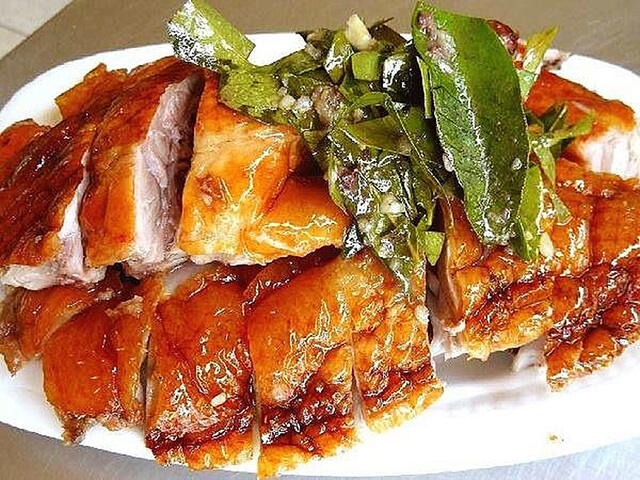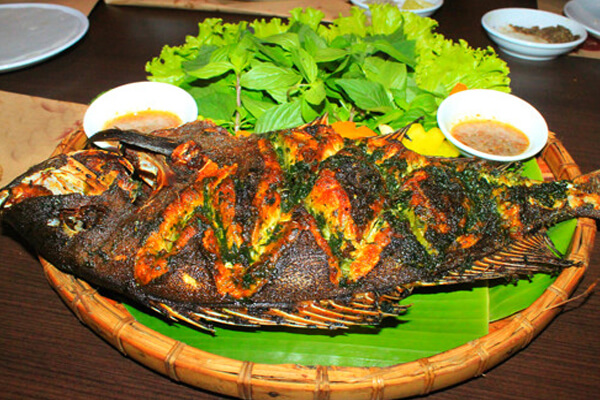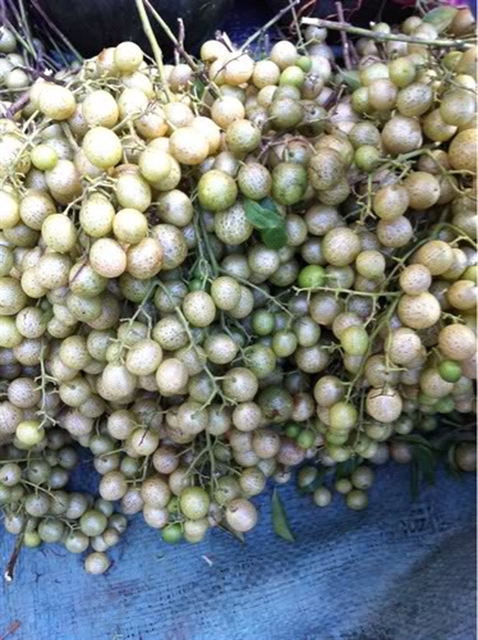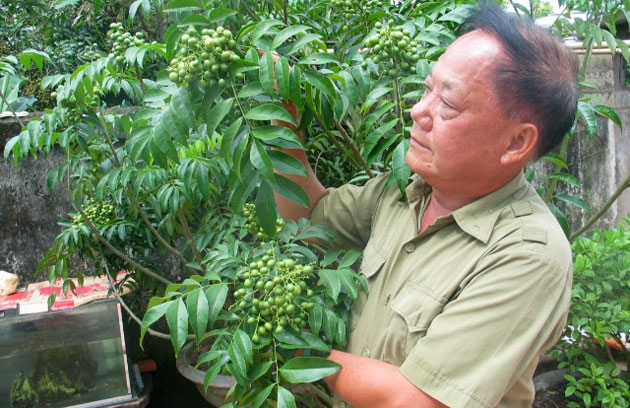[ad_1]
Thanh Hà
The wild mác mật (clausena indica) tree has become an indispensable ingredient for a number of special dishes made by the Tày and Nùng ethnic groups in northeastern provinces such as Cao Bằng and Lạng Sơn.
Tày man Nông Văn Lai, 74, in Cao Bằng, said mác mật is known locally as sweet fruit.
“Apart from using the fruit to braise it with pork or fish, we often use the tree’s leaves to stuff a duck, a chicken or a pig before roasting it,” he said.
The leaves help give these dishes a great and aromatic flavour and have become specialities of the region.

Ingredients for roast duck include mác mật leaves, dried onion, garlic, chilli, honey, salt, sugar, and pepper. They are minced and stuffed inside the duck before roasting it over charcoal, said Lai, adding that the leaves’ essential oil helps release the fishy smell from the duck and makes it more fragrant and tasty.
“With the buttery taste, the leaves help eaters enjoy the dish without it being too greasy,” he said, noting that the leaves are also used for roast fish and roast pig stomach.
In addition, the leaves and fruit are very good for human health as they are rich in vitamin C, with high protein, iron, and calcium. They help protect the liver and stimulate the digestive system, Lai added, noting that the tree’s roots are used as herbal medicine to treat pain.

Lai’s wife Hà Thị Noọng said she and other villagers often collect fresh bamboo from the forest and cut it into thin pieces and mix it with fresh mác mật fruit and chilli then preserve it in light saltwater. The dish can be eaten after two weeks.
“The dish is lightly sour, hot with a special flavour of fruit and crispy of the bamboo. It can be spent to eat year-round and can be used to fry or braise other dishes,” she said.
The mác mật season is short and runs from late in the seventh lunar month until late in the eighth lunar month, but today people know how to process it into powder or dry it to serve customers to use year-round, Noọng said.
Đỗ Minh Hằng, a manager of a restaurant in Hà Nội, said her chefs use mác mật fruits and leaves to cook several dishes.

“We order the fruit and leaves from Cao Bằng to produce our own dishes such as duck and chicken which receive big praise from a lot of eaters, including foreign guests,” Hằng said.
Lại Thị Hòa, a teacher from Hà Nội, said she often visits Cao Bằng during the mác mật season to buy the fruit in local markets.

“Very few fruits have such special fragrance. When I taste one, lightly sweet and lightly sour flavours come from its light white pulp. I enjoy it so much as if I was enjoying the wild flavour from the mountain and the forest,” Hòa said.
“Before the COVID-19 pandemic spread worldwide, I often sent several kilos of these products to my parents in Los Angeles, the US, too,” Hòa said.
Hòa said during her stay in the province she also tried mác mật roasted duck.
“The dish has a furious attraction. A soft and fragrant duck meat seasoned with the fresh leaf really stuck with me,” she said. VNS
[ad_2]
Source link